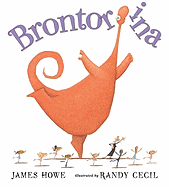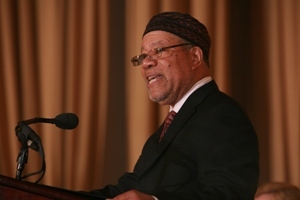Sharp Corporation will jump into the e-reader pool later this year "with a device that can read a new e-publishing file format of its own," PC World reported, noting that the company plans to launch the device in Japan, but "is likely to hit the U.S. after Japan and Sharp said it is already in launch talks with Verizon Wireless."
The Wall Street Journal wrote that two prototype devices were on display at a news conference yesterday: "The smaller of the two resembles an extra-large smartphone, with a 5.5-inch screen. The other device resembles Apple's iPad in scale and comes with a 10.8-inch screen. The company didn't disclose pricing plans."
"The idea is to offer an iPad made in Japan," said Masami Ohbatake, head of Sharp's information and communication-systems business.
---
Who knew that the self storage industry had a stake in the ongoing e-book debate? According to ExtraSpace.com, "Between the e-books offered by Amazon and other booksellers, and the e-books available through Google Books, the world of book publishing is about to go through a dramatic change. If you are currently choosing between getting rid of hardcover books that are in good condition, or putting them in a self storage unit, this may be the time to consider preserving those bound books--a few years from now, they may indeed have become collectors' items. Paperback books are still outselling e-books, for the moment--but the day is coming when paperbacks may be collectors' items too."
---
At least six books about BP's Gulf oil spill disaster are already in the works "and several more proposals are circulating," the New York Times reported.
"There are lots of people circling the subject," said Mitch Hoffman, an executive editor at Grand Central Publishing. "With a story of this magnitude and importance, there are going to be any number of books. I was hearing consistent chatter inside of the first few days of when Deepwater Horizon went under."
Geoff Shandler, editor in chief at Little, Brown, chose not pursue any of the proposals he saw, however. "The spill is one of those stories that is shocking but not surprising. It's incredibly important, but weirdly, it's not that dramatic in terms of the action."
---

Media coverage of the departure of Elliott Bay Books from Seattle's Pioneer Square "heaped attention on the downtown neighborhood, but not the kind that neighborhood activists want. Now, neighborhood groups, residents and business owners are working to give the neighborhood an image makeover," the
Post-Intelligencer reported in the second of a two-part series on the changing area (
Shelf Awareness, July 19, 2010).
Peter Aaron, Elliott Bay's owner, "thinks Pioneer Square needs help from government officials, residents and business owners. Over time, the city's oldest neighborhood has become a 'containment zone of social problems,' " the
Post-Intelligencer wrote.
---
"Books remain an important medium for transmitting cultural legacy and though Shanghai is very much on-the-go, there are still oases of reading. They say that to know a city, one has to visit its local bookstores. You can't afford to miss out on Shanghai's bookstores if you want to know what makes this city something special," the
Shanghai Daily advised.
---
In celebration of Faber & Faber's 80th anniversary, the
Guardian featured a slideshow of eight decades of the publisher's book cover designs.
---
For fans of H.P. Lovecraft and ukeleles,
Boing Boing showcased the Cthulkhelele, which Neil Gaiman had highlighted on Twitter.
---
"I realize we're picking the bones from the Old Spice campaign at this point, but when I saw that the Brigham Young University
parody of the Old Spice ads had gotten more than 1.2 million views (Old Spicy himself--that's what I'm calling him--did a
video for libraries), it got me thinking," wrote Linda Holmes on NPR's blog, where she offered several reasons "
Why the Next Big Pop-Culture Wave After Cupcakes Might Be Libraries":
Libraries get in fights.
Librarians know stuff.
Libraries are green and local.
Libraries will give you things for free.
"Open to the public" means "some days, you really have to wonder about people."
There seems to be a preposterous level of goodwill.
---
"Can fart jokes save the reading souls of boys?" The
Associated Press suggested that we should hope so because "boys have lagged behind girls in reading achievement for more than 20 years, but the gender gap now exists in nearly every state and has widened to mammoth proportions--as much as 10 percentage points in some, according to the Center on Education Policy." Parents are now "hoping books that exploit boys' love of bodily functions and gross-out humor can close the gap."
---
A legal battle has developed regarding the cache of Franz Kafka's manuscripts recently discovered in a Swiss bank's safety deposit boxes, which the
Guardian reported "are believed to contain thousands of manuscripts by Kafka and [Max] Brod, including letters, journals, sketches and drawings, some of which have never been published and could provide literary detectives an insight into one of the 20th century's greatest writers."
Unfortunately, the Guardian noted in an
update that the story is bordering on Kafkaesque because "the expectant Kafka enthusiasts, historians and critics will have to wait longer, after two Israeli sisters who insist they own the papers by inheritance from their mother banned all reporting of the boxes' contents."
---
In a literary acknowledgment of England's new coalition government, the
Guardian asked politicians and writers "to recommend two books--unlikely bedfellows or easy companions--to take on holiday this summer."
---
A £1,000 (US$1,527) short story competition in England for "budding young writers" was created to celebrate the work of H.G Wells, but "failed to attract a single entry," the
Kent News reported. The contest's organizer suspects that "over-strict rules" were to blame, since each entry had to be handwritten.
---
Noting that rare book thief William Jacques is headed back to the slammer,
AbeBooks.com chose the occasion to recommend 25 examples of the best prison literature ever published because the big house "remains a place no-one wishes to go but everyone wants to read about. The vast majority of people will never step inside one but everyone can imagine what jailbird life must be like."
---
Book trailer of the day:
Bink and Gollie by Kate DiCamillo and Alison McGhee, illustrated by Tony Fucile (CandlewickPress), which will be published September 14.
 "I was persuaded in a moment of apathy when I was convinced I had a fatal illness and would not live much longer. I don’t own a computer, have no idea how to work one, don’t own a word processor, and have zero interest in technology. Many people thought it would be a nice idea for me to read my stories and I gave in.... The discovery I made was that any number of stories are really meant to work, and only work, in the mind’s ear and hearing them out loud diminishes their effectiveness. Some of course hold up amusingly but it’s no fun hearing a story that’s really meant to be read, which brings me to your next question and that is that there is no substitute for reading and there never will be. Hearing something aloud is its own experience but it’s hard to beat sitting in bed or in a comfortable chair turning the pages of a book, putting it down, and eagerly awaiting the chance to get back to it."
"I was persuaded in a moment of apathy when I was convinced I had a fatal illness and would not live much longer. I don’t own a computer, have no idea how to work one, don’t own a word processor, and have zero interest in technology. Many people thought it would be a nice idea for me to read my stories and I gave in.... The discovery I made was that any number of stories are really meant to work, and only work, in the mind’s ear and hearing them out loud diminishes their effectiveness. Some of course hold up amusingly but it’s no fun hearing a story that’s really meant to be read, which brings me to your next question and that is that there is no substitute for reading and there never will be. Hearing something aloud is its own experience but it’s hard to beat sitting in bed or in a comfortable chair turning the pages of a book, putting it down, and eagerly awaiting the chance to get back to it."









 In Blind Side, which became a Hollywood movie last year, Michael Lewis
focused on Michael Oher, a homeless black teenager in Memphis, Tenn.,
who was taken in by Leigh Anne Tuohy and Sean Tuohy, and then became a
football phenomenon. The Tuohys have since told their story in In a
Heartbeat: Sharing the Power of Cheerful Giving (Holt), and last Friday held a cheerful event at the Davis-Kidd store in Memphis. Here the
Tuohys, in front, appear with booksellers (l. to r., in back) Nicole
Yasinsky, Michael Link, Christina Meek, Carley Cianciolo and Katherine
Whitfield.
In Blind Side, which became a Hollywood movie last year, Michael Lewis
focused on Michael Oher, a homeless black teenager in Memphis, Tenn.,
who was taken in by Leigh Anne Tuohy and Sean Tuohy, and then became a
football phenomenon. The Tuohys have since told their story in In a
Heartbeat: Sharing the Power of Cheerful Giving (Holt), and last Friday held a cheerful event at the Davis-Kidd store in Memphis. Here the
Tuohys, in front, appear with booksellers (l. to r., in back) Nicole
Yasinsky, Michael Link, Christina Meek, Carley Cianciolo and Katherine
Whitfield. The coach and quarterback of last year's Super Bowl champion New Orleans Saints had a little side wager on their early summer publishing world competition. Sean Payton (Home Team: Coaching the Saints and New Orleans Back to Life) and Drew Brees (Coming Back Stronger: Unleashing the Hidden Power of Adversity) "bet dinner and a bottle of wine on who would sell more books,"
The coach and quarterback of last year's Super Bowl champion New Orleans Saints had a little side wager on their early summer publishing world competition. Sean Payton (Home Team: Coaching the Saints and New Orleans Back to Life) and Drew Brees (Coming Back Stronger: Unleashing the Hidden Power of Adversity) "bet dinner and a bottle of wine on who would sell more books," 

 Favorite book when you were a child:
Favorite book when you were a child: 
 If you are Jerry Pinkney,
If you are Jerry Pinkney, If you are Rebecca Stead,
If you are Rebecca Stead,